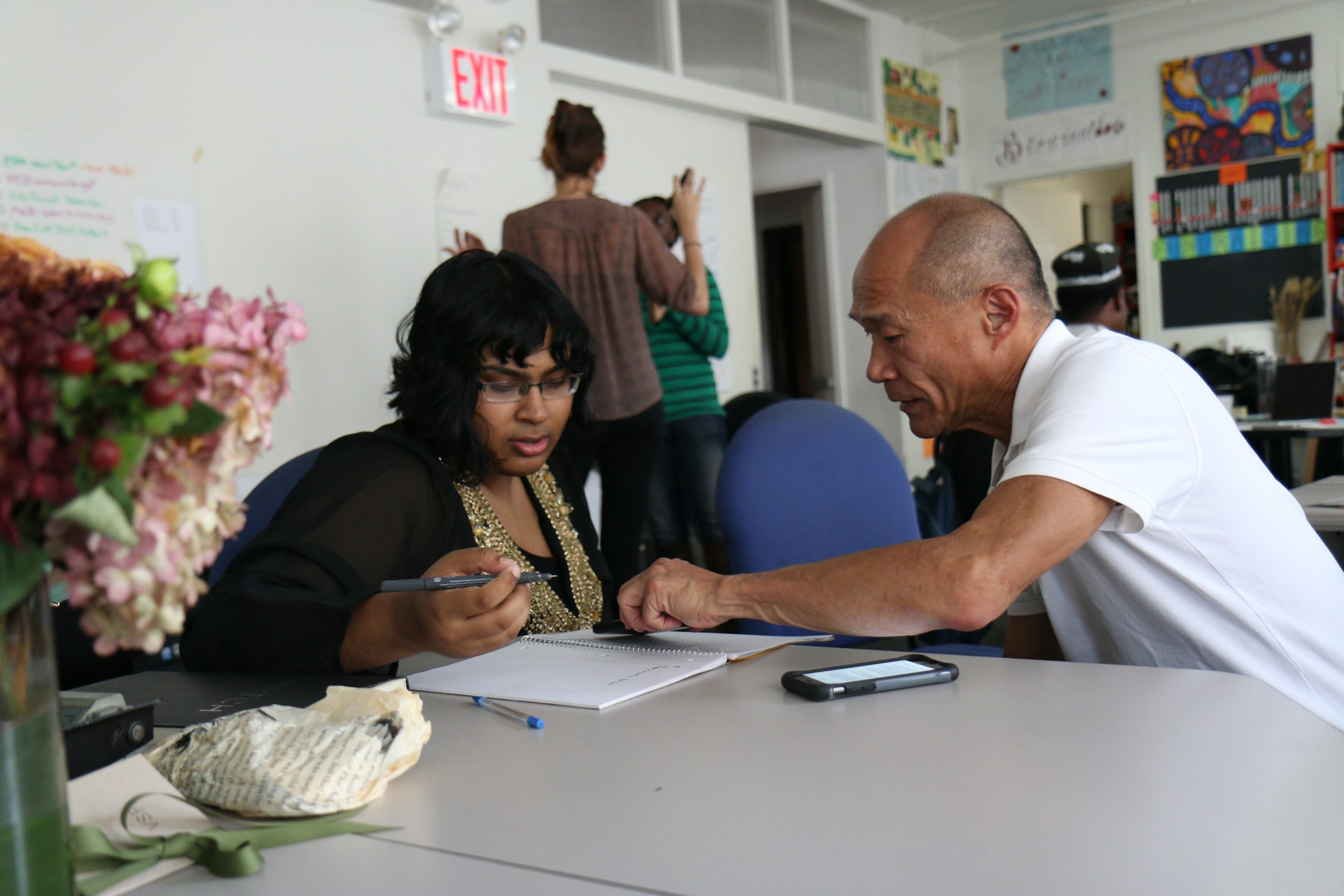Photo by Monica Melton on Unsplash
A popular genre in Writing Studies pedagogy is the literacy narrative. It asks students to reflect on moments critical to their development as readers and writers, inviting them to interrogate the roots and fruits of their formative literacy experiences. Gloria Anzaldua’s “How to Tame a Wild Tongue,” Kiki Petrosino’s “Literacy Narrative,” and Anne Lamott’s Bird by Bird, stand as compelling professional ruminations on these questions, exploring ways literacy experiences shape our larger identities.
In joining the VPFA’s office as a faculty fellow with a charge to institutionalize mentoring, building on work seeded at the 2019 Symposium, and realized by faculty from across teaching and professional and tenure-track series, I found a new cause to contemplate: What is mentoring? And further, What can it be at DU? To approach these questions, I thought about my most meaningful mentoring experiences and the individuals who shaped and guided me. Essentially, I developed what might be called a mentorship narrative. As you read these reflections, I ask you to consider those who have mentored you. What was their style? How did they move, push, and support you? And consider what kinds of mentors we could be to each other now and in the future.
I grew up the child of educators. My dad was a high school PE teacher, and my mom ran a preschool out of our basement. They were both first-generation college graduates and strong advocates of education. Even so, as I moved through my education, I was left to navigate the terrain on my own. Alone, I highlighted course catalogues and created checklists in the run up to each graduation, sick with fear that I would open the leather folder on graduation day and find it empty. But it never was. In each new educational setting, I developed the necessary competencies, unknowingly engaging in a form of Carr’s “self-mentoring,” or “leading oneself in an unknown environment or even hostile setting” (p. 1759).
When I arrived as a doctoral student at the University of Denver in 2002, I expected more of the same. However, on the first day of GTA training, I met Margaret Whitt. She was decades my senior, southern, and very self-assured. She directed the then First-Year English program, knew every living soul at DU, and regularly stayed on campus late into the evening. Margaret was my first real mentor. With her guidance, I became a more confident and skilled teacher, accepted my first position in academic leadership as assistant director of First-Year English, and continued to fight the persistent and devastating tides of imposter syndrome. Our dynamic was complex. She deployed what Bothello and Roulet call the “Jedi-apprenticeship” method of mentoring: “a tough master” trains “clueless students to continue his/her tradition” (p. 858). But I soaked it up. She had what I lacked: experience. And Margaret gave me something more precious than the Force: her time. A few years later, with her guidance, I was hired into her position as Interim Director of First-Year English after she stepped down. I was 28.
In my year as Interim Director, I learned quickly about the complexities of leadership. In the span of a day, I went from a pal and fellow-GTA to the person who assigned teaching times, observed classes, and read teaching evaluations. It was decidedly a “learning year,” but I took an important value from Margaret: give your time. I threw off the Jedi approach for several reasons, not the least of which was that I did not have more experience than the teachers I mentored; in some cases, I had a lot less. From this position of inexperience, I developed what Irving and Berndt call a “follower focus” to my mentoring, “out of the conviction that service of people is not merely a means to a greater end, but is inherently valuable in and of itself” (p. 27).
After my year as Interim Director, I settled into a faculty role in the newly constituted University Writing Program. No longer in a leadership position, I developed informal mentor/mentee relationships with colleagues. At the same time, I became a mother and began my search for the elusive “work-life balance.” Few of my colleagues were mothers, and none had babies. I yearned for an academic community that understood my position. To ease my alienation, I developed a qualitative research project on pregnancy in the academy. Through this work, I interviewed women from departments across DU, as well as staff and upper-level administrators. While my research yielded modest scholarly outcomes, ultimately, I used these interviews as excuses to meet other academic mothers, to have conversations about our shared experiences, and to find a space to connect. Unlike my more traditional mentoring relationship with Margaret, these informal relationships were mostly horizontal, organically networked, and evolving.
Geographer Karine Duplan names this experience and offers a reflexive approach to informal mentoring. Using a feminist lens, Duplan argues for a “culture of mentoring as a culture of caring—allowing for the existence of specific places that can operate as nexuses of relationships, rather than solely upon individual initiatives” (p. 1279). My interviews were such nexuses, as were the ensuing coffee dates that later led to myriad professional collaborations and partnerships across years. Indeed, they comprise the most meaningful mentoring influences of my career.
With strong support from the VPFA, we have an opportunity to build meaningful and diverse mentoring structures at DU. Mentoring works best when it’s faculty-led, caring, holistic, and inclusive. What, then, are your experiences with mentoring? What are the formal and informal “nexuses” that have informed your experiences? What is your mentoring narrative? What mentoring structures have failed you or worked well for you? As you ponder these questions, I hope and ask that you share your insights and join me in this ongoing and important conversation.


